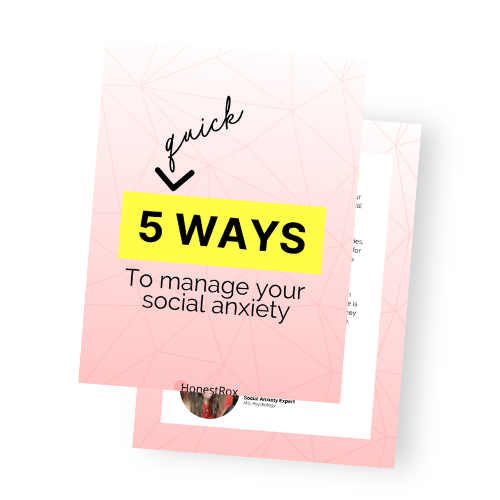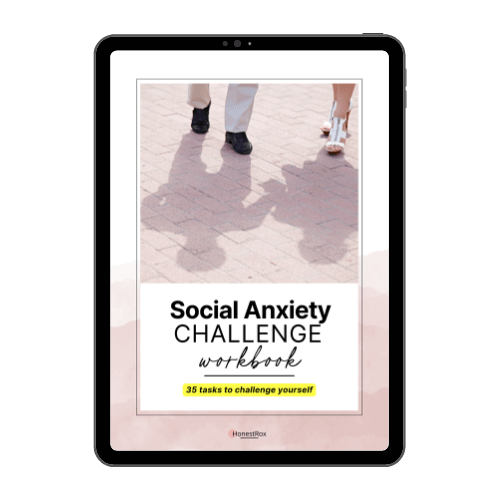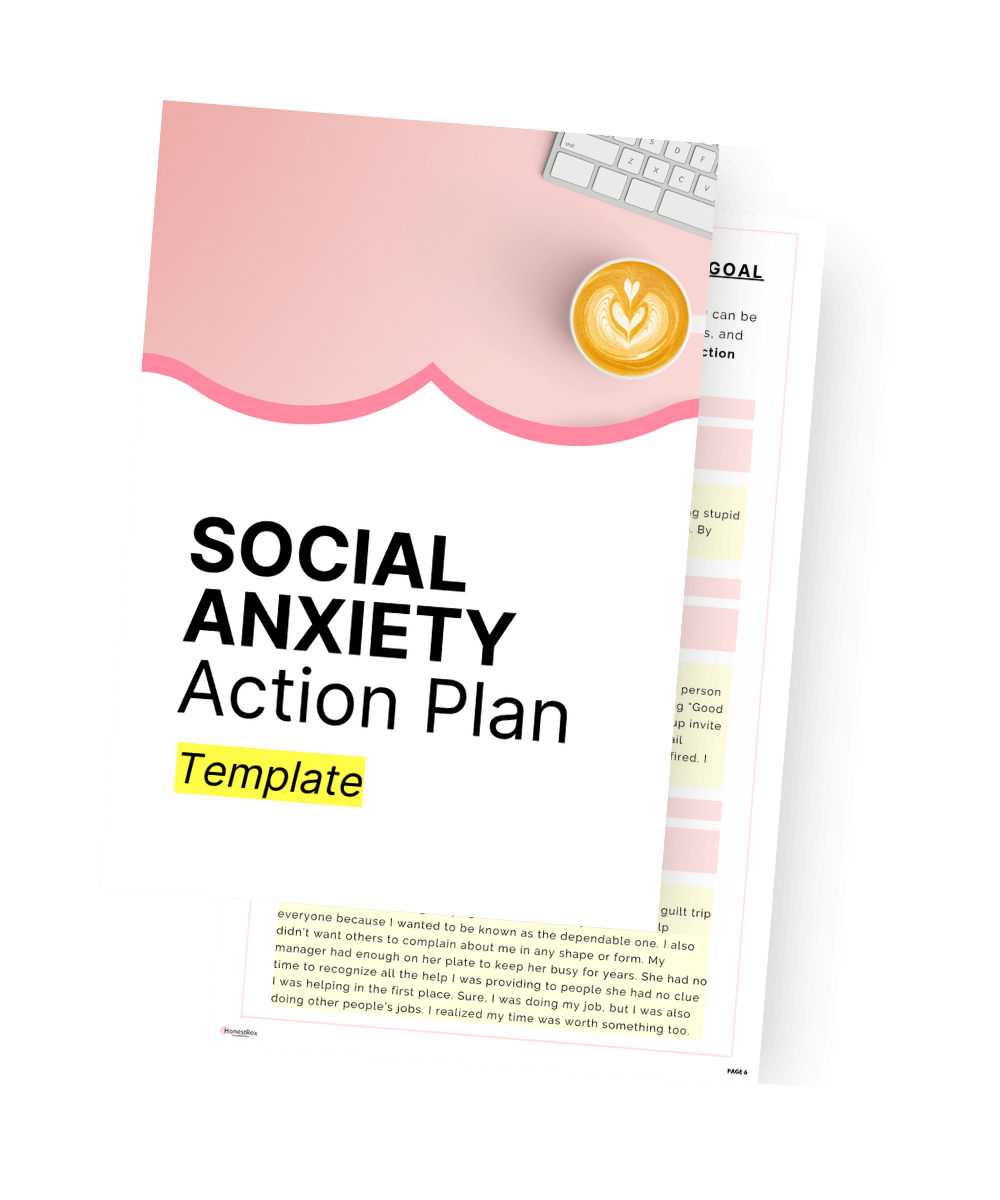
Social Anxiety
The 10 Universal Fears
Let’s go through the 10 universal fears and how they are connected with (and trigger) social anxiety
Let’s talk about universal fears and social anxiety to see just how deep it goes.
Have you heard of the ten fears holding us all back in life?
I’m not talking about ophidiophobia (fear of snakes), although I’m pretty sure if I lived in an environment where snakes would pop up any second, I wouldn’t be living my best life.
Sure, most of us can probably list one or two irrational fears, but generally, those aren’t getting in the way of living a happy and fulfilled life.
Let’s face it: your chances of running into a snake if you’re terrified of one are low. But your chances of being rejected by someone are much higher.
Now, this list comes from LifeHack.
There are plenty of other lists, but they’re all quite similar. I picked this one because it felt on point and had good reasons why the author chose the fears they did.
So, in this article, I want to open your eyes to the connection between universal fears and social anxiety.
These fears steadily chip away at your chance to live your best life. Because if you pay too much attention to these and take them to heart (the way we do with irrational phobias), then you’re only screwing yourself over.
I imagine that the non-socially anxious folk might run into one or two major fears once in a while.
Still, if you have social anxiety, you’re facing any of these universal fears at any given moment in time, so of course, you’re having a hard time, feeling debilitated day in and day out.
It’s pure punishment.
The good news is that we can rationalize each other and find ways to manage them so they don’t hold too much power over us.
Fear of rejection
This encapsulates the social anxiety experience. This weight is a thousand pounds heavy. Being rejected by co-workers, classmates, and crushes because you say or do something wrong (or maybe you do nothing) is a constant thought in your mind.
In essence, it could happen to any of us at any moment of any day.
But some of us are more equipped to handle it than others. How come? Why do some people take rejection so personally and get crushed by its whole weight, while others can stand their ground and move on without tarnishing their self-worth?
It has to do with how we respond to it and the thoughts we associate with the rejection. But it goes even deeper than that. It’s the labels we place on ourselves post-rejection that have us spiral out of control.
Labels such as unworthy, unlikeable, ugly, incompetent, and failure, to name a few.
And those cut deep. People who deal with social anxiety daily will do everything they can to avoid rejection, knowing all too well how fast it can all unravel, leaving them feeling utterly useless.
Fear of failure
Does it feel like everything you do is a performance? Small talk, regular conversations, basically walking outside your home? If every social interaction feels like you’re performing, then by definition, you’ll have expectations over it.
You want to put on a good show for people (and yourself).
And with expectations comes the fear of failing.
You wanted to show how smart you are but accidentally blurted out something “stupid.”
You wanted to connect deeply on your first date with someone, but you came off as aloof and distant, so they didn’t get to know you.
You wanted that promotion but couldn’t make a strong enough case.
In each situation, expectations weren’t met, so the next time around, you might choose not to try. The fear of failure becomes so big that it restricts your life in many ways.
Whatever scenario, our minds tend to run through the gamut of ways we can fail. It seems that we’re constantly preparing ourselves for failure instead of success. We have our favorite dish, show, or dessert lined up to soothe us at the end of the day. We know exactly what we’re going to do and in what sequence should something not go our way.
And most of the time, in regards to social anxiety, we stop pushing our comfort zone.
Fear of uncertainty
The desire to connect with others is innate, but not knowing how it will go down can trigger social anxiety. You might want to join an after-school club or the gym at work, but you don’t because you’re not sure you’ll be able to integrate, have something to offer, or relate to the people around you.
Uncertainty is the most uncomfortable feeling, so it makes sense we do everything we can to avoid it. We will always choose predictability and routine over uncertainty, no matter how boring things might be.
Choosing uncertainty over what you already know takes guts and a high tolerance for risk. Unfortunately, most of the time, uncertainty chooses us.
Life loves to throw tornados our way and expect us to be calm and cool while we’re being taken for a ride.
Meanwhile, after going a thousand miles an hour, in whichever direction, we land in the middle of an unknown island with no way of returning to our old life.
That’s scary, man.
Fear of being judged
This is the most direct fear associated with social anxiety. The intense worry over people thinking negatively of you (even in their dreams) is at the heart of social phobia.
And this runs deep.
You might feel self-conscious about eating in public because you’re worried others will judge what you eat, how, and why.
You might feel self-conscious over your appearance, how it’s not trendy enough, or that your socio-economic status will be revealed, and you’ll be mocked for it.
You might feel self-conscious because you come from a mixed background, and people don’t understand it, so you worry you’ll be cast to the side.
Feeling judged makes us feel defeated from the get-go. We immediately retreat into the depths of our minds and disconnect from the world around us. We feel the sting of their stares and minimize our worth immediately upon request.
We lose sight of what brings us joy, our values, and how we show up for ourselves.
This is a debilitating fear that can’t simply be waved off. It makes life-altering decisions for us, and we end up believing the reasons why we’re being judged.
So, I suppose, in a way, we’re not so scared about being judged per se, but instead, we’re terrified of how hard we’ll internalize someone’s judgment of

5 Quick Ways To Manage Your Social Anxiety
There’s no substitute for effort, but you can speed up the process if you understand and take these 5 ways seriously. This is your starter pack; what you do with it is up to you.
Fear of change
Change. Period. Do I need to add more to this? Listen, no matter how often you hear that the only constant in life is change, it won’t ever lessen its impact.
When faced with the reality of standing in the “after” and never being able to return to our “before,” it messes with our brain chemistry. Not all change can be reversed, especially the one forced upon us by external circumstances.
Change brings out social anxiety as we have to readjust to everything: new neighbors, co-workers, job, and a new dentist/doctor/hair stylist. Sometimes, the grief of the change is too much even to function.
Add social anxiety on top of that, and that’s a recipe for disaster.
We need time to acclimate to a new environment and become creatures of habit. If we’re not equipped with the right tools and social skills to step up our game, we’ll have a tough time adjusting, and it will take much longer than we’d hoped.
Fear of loss of freedom
This one might seem unrelated to social anxiety until you peel off the layers.
Loss of freedom can feel like being stuck at a party, experiencing social anxiety, with no exit in sight. It’s not like you can go cocoon under the blanket because you’re miles away from home.
Maybe you carpooled there, drank too much, and now you must stick around until the end. At that moment, it might feel like you are not free to do what you want. So the next time, you might turn down an invitation because you’re worried about going through this trapped feeling again.
Or maybe your parents forced you to talk to your aunts and uncles and be social at family gatherings. Maybe you felt suffocated because you couldn’t talk back; otherwise, you’d be reprimanded or punished.
So you won’t bother reaching out or being present because of that lack of freedom to act as you see fit. You’ve been conditioned to remove yourself from social outings because of the loss of freedom whenever you did engage.
Fear of inadequacy
This is closely tied to the fear of being judged. Feeling “less than” or not good enough in social situations is a common worry. This is the voice in your head whispering (or sometimes screaming), “You’re not enough.” It’s the quiet saboteur that tells you, “You’re not smart enough, skilled enough, attractive enough, or capable enough to even try.”
This fear might keep you from applying for leadership roles at work or even raising your hand in a meeting to share an idea. It holds you back from stepping onto a stage, whether that stage is literal or figurative. Speaking in front of a group or just being noticed can feel like opening the door for the world to confirm your worst fear: that you’re not worthy of the spotlight.
But here’s the real kicker: fear of inadequacy is self-perpetuating. You tell yourself you’re not good enough, so you don’t take risks. And because you don’t take risks, you never give yourself the chance to grow or prove your inner critic wrong.
The cycle loops endlessly, feeding on itself.
Fear of bad things happening
This is a general fear about anything; we all walk around with this fear to some extent. Remember, we are on a hurtling rock! A rock from a falling rooftop could take us out! And that’s just worrying about our physical safety—the safety of our family, our children, and our pets.
Then there’s the general anxiety over bad things happening to us that take us off the path (loss of job, health, home), leaving us stranded and lost, looking for what once was. There’s a lot to contend with when it comes to being human.
But in the context of social anxiety, a bad thing happening can be silence and awkwardness during a conversation, a confrontation over a word you said, being emotionally triggered and unable to hide, being the object of rumors, or unintentionally offending someone.
Even little things like this can create a feeling of unease that something terrible will happen. Things will unravel, and you could potentially lose a good friend, get fired, or be excluded from that moment.
The list is long.
Fear of getting hurt
This is also quite a general fear and could mean anything. Again, it could be that you’ll get physically hurt and be disabled for the rest of your life. It could be emotional hurt that you can’t fully recover from, such as an intense heart break that leaves you traumatized.
Getting hurt can mean a variety of different things. We’re all wired differently and we all experience hurt on a spectrum. Some people might move on easier from a heartbreak than others, so they’re not as scared to get back into a relationship.
As it relates to social anxiety, you might not share your story, be vulnerable, or ask questions because you’re scared of the emotional hurt that can come from it. You don’t think you can handle feeling less than, unworthy, or misunderstood, so you keep to yourself.
This is a self-fulfilling prophecy because if you avoid sharing thoughts or getting closer to someone, you’ll alienate them and get hurt. It feels counterproductive.
What do you think?
Do you see the connection between the universal fears and social anxiety?
It helps me understand how deep social anxiety is and why it gets triggered so often, in so many ways, and so many situations.
There are 10 universal fears that we all generally run into. I wanted to connect them with social anxiety to show you how deep it goes
These are the ten universal fears:
- Fear of rejection
- Fear of failure
- Fear of uncertainty
- Fear of loneliness
- Fear of being judged
- Fear of change
- Fear of loss of freedom
- Fear of inadequacy
- Fear of bad things happening
- Fear of getting hurt

I'm Roxana

I went from being scared to ask a question out loud to hosting summits online. I love coffee, french crepes, and working from home. My mission? Help others build their social confidence to make friends, have conversations, and be comfortable around people!
Did you find value in my content? Support me by clicking the button!
Recent blog posts
Latest Episode

About the blogger
I'm Roxana Claudia
👋 Hi, I’m Rox. Let’s work on your self-worth. More than anything, I want you to believe you’re worth knowing instead of banking on external elements making that call for you.
Like what you see here?
Check out the blog!
Must Reads
Grab these freebies
Free Challenge
5 tasks. 3 difficulty levels. Test your social anxiety through exposure therapy.
Grab these freebies
Free Template
Get the template that I personally used and create your own steps for your journey.
A podcast meant to help you be comfortably you, no matter the situation. My goal is to give you the confidence to go out into the world, share your worth, build meaningful relationships, and see yourself as highly capable. It all starts with being your awkward self comfortably.
You’re worth knowing
The You’re Worth Knowing newsletter drops weekly to inspire, motivate, and educate you on embracing your true worth, rejecting societal pressures, and living authentically. Expect a mix of personal stories, real talk, and a few laughs along the way—because living boldly can be fun!

Hi, I'm Rox!
I spent years struggling with toxic shame, which often showed up as crippling social anxiety. It held me back in so many areas of my life, making me feel unworthy and paralyzed by fear. But through years of self-discovery and healing, I finally found the tools to break free from it.


 Buy me a coffee!
Buy me a coffee!












